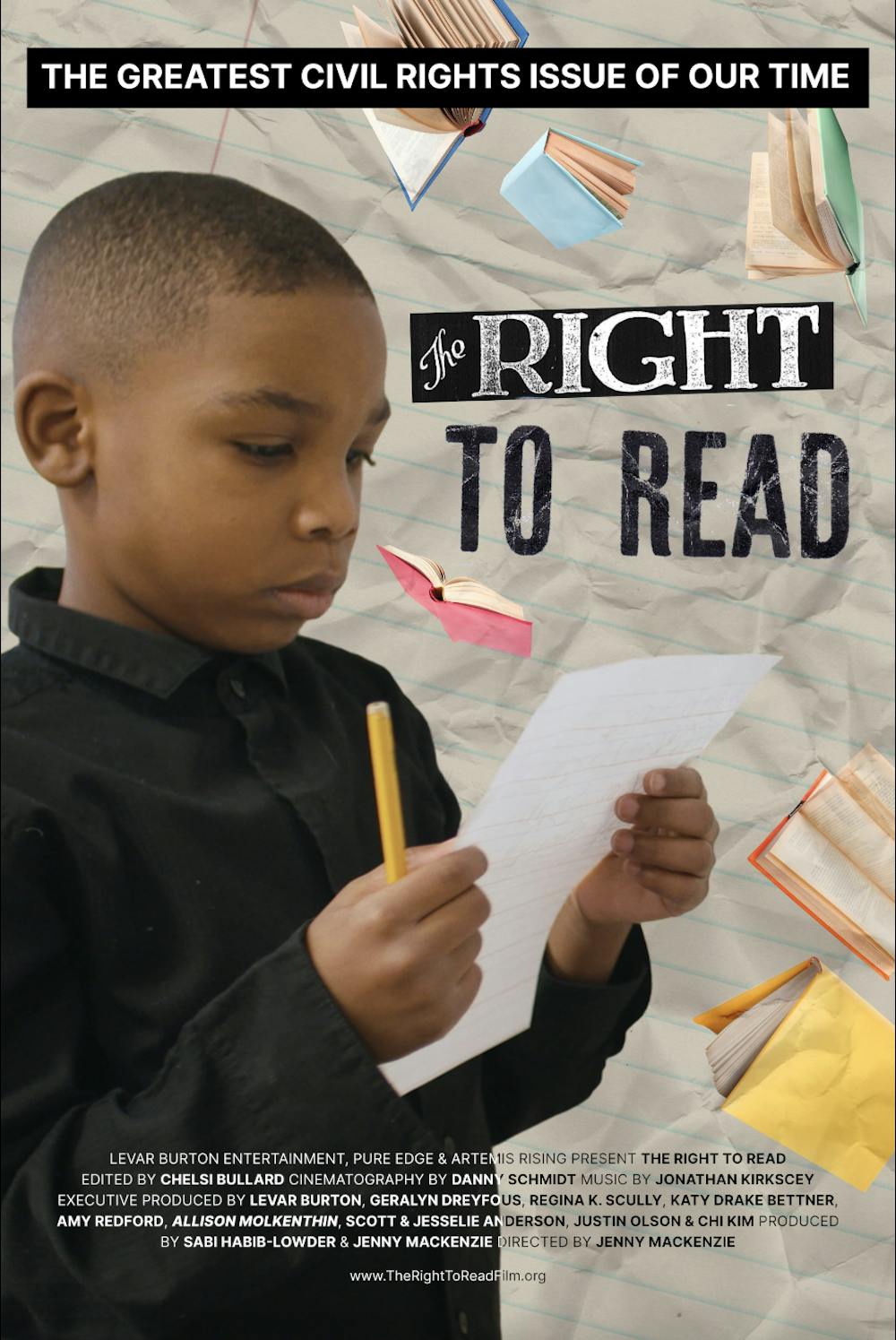On Saturday, Jan. 18, Albuquerque’s Guild Cinema hosted a screening of the documentary “The Right to Read.” The event was presented by the May Center for Learning and the International Dyslexia Association-Southwest Branch. The proceeds went to benefit May Center students.
The May Center, which is located in Santa Fe and led by Executive Director and co-founder Amy Miller, is an organization focused on empowering “students with learning differences to be successful, confident learners,” according to the mission statement on its website.
The organization has multiple programs, including the May School, which serves students through eighth grade with learning differences like dyslexia, ADHD and language processing disorder.
The May Center also includes the May Teacher Institute, where it instructs educators on how to properly teach children with learning disabilities. The May Teacher Institute offers a Dyslexia Specialist National Certification Program, which is the first Structured Literacy teacher preparation program in the state to be accredited by the International Dyslexia Association, according to its website.
“The Right to Read” is a documentary focusing on teachers and students in public schools during their journeys to teach and learn to read. The film primarily follows Kareem Weaver, a teacher and activist from Oakland, California.
Weaver’s advocacy promotes a curriculum based in the science of reading, meaning the use of structured literacy, which starts with sounds and phonics — versus “whole language,” which is based around memorizing words. The documentary cited the rise of whole language curriculum as one cause of illiteracy.
The documentary additionally follows the parents and teachers of students working to teach children to read, and it details the struggles caused by whole language learning. One teacher, Sabrina Causey, secretly changed the curriculum she felt wasn’t working.
“She took a risk to introduce the science of reading in her classroom and saw incredible results,” as the film’s webpage explains.
Structured literacy is especially helpful for kids who struggle with reading, according to the Stern Center for Language and Learning.
“Literacy is our greatest civil right,” Weaver said in the documentary. “If you can’t read, you can’t access anything in our society.”
After the film, a Q&A session was held. Panelists included Miller; Megan Rosker, the director of outreach for the May Center; Paloma Ramos, a student of the May School; her mother Tanya Ramos, co-chair of the May Families Committee; President Pro Tempore Sen. Mimi Stewart (D) and Albuquerque Mayor Tim Keller.
Stewart explained her history and plans for developing New Mexico’s education system and literacy rates. She was an educator before becoming a legislator and has been working to improve the reading curriculum in New Mexico for 30 years, she said.
Get content from The Daily Lobo delivered to your inbox
“In 2019, Senate Bill 398 passed. It required first grade teachers to screen their students for dyslexia. It required them, though this was the most important thing, to get training in structured literacy,” Stewart said. “And finally, we are now at the place where I'm carrying a bill from the governor that will put the requirement to teach reading according to the science of reading in our state statutes.”
Stewart also voiced a message of resilience and confidence regarding her work and potential upcoming changes to the federal Department of Education under President-elect Donald Trump’s administration.
“We don't think that they can just change the department of education the way they're thinking about it,” Stewart said. “It's just a crazy idea if they do away with the Department of Education, it impacts maybe 25% of the funding that we get … We're squirreling money away in case stuff like that happens; we feel like we're going to have the ability to be flexible, but I don't think he can do that.”
When asked what advice she would give to another child struggling with a learning disability, Paloma Ramos said it’s never too late to reach out, learn and get help.
Keller shared his own experience growing up with dyslexia and difficulty reading. He said that school was challenging, but he found that himself and many other kids developed “compensatory skills,” which also served them in other ways.
“I always try and tell parents or kids who are going through this kind of thing … get accommodation as soon as you can,” Keller said. “You have to let dyslexics know that they have a superpower … the modern version of superheroes is they're all tragically flawed.”
Addison Fulton is the culture editor for the Daily Lobo. She can be reached at culture@dailylobo.com or on X @dailylobo
Elijah Ritch is a freelance reporter for the Daily Lobo. They can be reached at culture@dailylobo.com or on X @dailylobo






